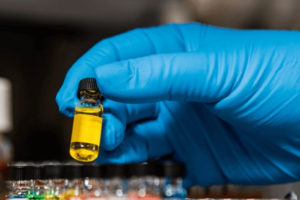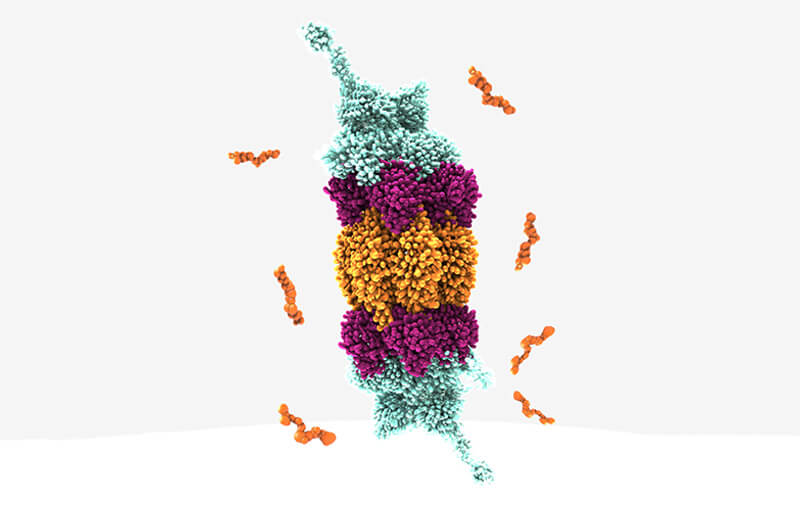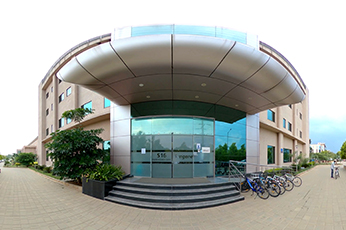Cancer is the second-leading cause of death worldwide, with nearly 10 million people dying yearly. In this blog, we look at two novel approaches that have emerged as effective in treating cancer—induced proximity-based drugs and precision medicines.
Induced proximity-based drugs
Targeted protein degradation
Induced proximity-based drugs pertain to a new wave of multi-specific medicines that promise to harness the principle of “induced proximity” using innate biological mechanisms (effectors) to drug “undruggable” targets. PROteolysis Targeting Chimeras (PROTACs) have garnered much attention recently for their ability to exploit the cell’s own degradation machinery (ubiquitin-proteasome system) to degrade target proteins irreversibly.
One important benefit of PROTAC compared to small molecules is its catalytic mechanism of action in inducing the degradation of the target protein. PROTACs have also shown success and remarkable biological responses across challenging and non-druggable targets. Not only is this novel strategy enabling the development of more potent and selective treatments for cancer and other intractable diseases, but it is also unlocking parts of the proteome that have traditionally been considered “undruggable”.
Syngene has acquired considerable expertise in induced proximity as a treatment mode for cancer. We offer Discovery expertise from target identification and validation to the identification of a development candidate. Our Formulation services include diverse approaches to ensure the bioavailability of your PROTAC using technologies such as nanoemulsion, nanosuspension, spray-drying, etc.
Syngene’s end-to-end expertise in PROTAC
| Discovery services | Biology | Chemistry | Safety Assessment | Computational & Data Sciences |
| Development
services |
Chemical Development | Formulation | Analytical Development | Clinical Development |
Targeted protein stabilization
Another upcoming area is targeted protein stabilization (TPS) — a targeted therapy approach to reverse intractable disease conditions. For example, tumor suppressors for cancer (e.g., TP53, CDKN1A, CDN1C, BAX) would benefit from a targeted protein stabilization (TPS) strategy rather than degradation. Unlike degradation, targeted protein stabilization is enabled through a small-molecule recruiter of a deubiquitinase (DUB) linked to a protein-targeting ligand to form a chimeric molecule. This action induces the deubiquitination and stabilization of the protein of interest.
Syngene has developed expertise in this novel approach by focusing on discovering covalent ligands for specific deubiquitinases. When linked to the appropriate protein-targeting ligand, the covalent ligand stabilizes a specific target protein – the so-called DUBTAC platform.
Precision medicine
Precision medicines promise to provide treatments that suit specific patient populations rather than a one-size-fits-all approach, where treatments are developed with little consideration for individual differences.
CAR T-cell therapy (a form of personalized medicine therapy) combines cellular, gene, and immune therapy. The most common procedure for CAR T-cell therapy starts with the extraction of T cells from the patient being treated, a process called leukapheresis. The T cells are then genetically modified to express a CAR molecule and expand. Finally, they are injected back into the patient, ready to fight the tumor.
Syngene has acquired significant expertise in precision medicines (especially for cancer), working with large pharma clients and helping new biotechs rapidly scale their programs. Our capability lies in two key areas –– molecularly targeted therapy and immunotherapy.
We have a comprehensive suite of services across NGS, cell Line engineering (CRISPR-Cas9), CAR-T proof of principle studies (autologous and allogeneic), and In-vivo oncology models (PDX/CDX/Syngeneic/Humanized). Syngene also offers extensive services across customized reagent generation, antibody development [monoclonal/bispecific/tri-specific/ antibody-drug conjugates (ADCs)], cell line development, and In-vivo PK studies. We have particular expertise in modeling head and neck cancer, with our unique PDX repository of 100+ patient tumour samples.
Syngene’s rich suite of Precision Medicine capabilities

















